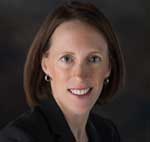** A version of this blog first appeared on the 5 Lakes Energy website on April 2, 2015.
Power plants waste a lot of energy—most of it as heat fleeing up their smokestacks. But what if the plants captured that wasted heat and put it to good use—producing more electricity, warming nearby buildings, or assisting industrial processes?
The practice, known as combined heat and power or CHP, is common in Europe. It’s less so in the U.S., but is now gaining some ground here. And it is ripe for more extensive use by Michigan utilities and manufacturers.
That’s why, as Lansing lawmakers consider forging a new energy policy for the state, CHP must be part of the discussion.
Many state legislators are considering using a robust integrated resource planning (IRP) process—that is, forecasting the state’s energy demand and publicly figuring out the least expensive, most environmentally smart way to meet it—to guide utilities’ power supply decisions. Some lawmakers are also talking about a relatively new idea, integrated distribution planning (IDP), which looks at how the accelerating deployment of distributed energy resources, which usually means “rooftop solar,” should affect utilities’ future operations.
CHP can and should have a major effect on both kinds of planning. That’s because CHP, or “cogeneration,” is the most efficient way to produce and utilize energy. Generating both electricity and heat from a single fuel source greatly increases the overall efficiency of the system.
The numbers are startling. Most fossil fuel-powered generators run at about 34 percent efficiency, but CHP power systems can reach efficiencies of 60 to 80 percent. That means getting double or better the “mileage” from the same amount of fuel, something that Governor Rick Snyder, with his heavy emphasis on the importance of eliminating energy waste, could strongly endorse.
Numbers like these make CHP useful in a number of ways.
First, it can help reduce demand—when heat from a power plant is sent to another building for another use, that facility uses less “external” energy—whether it’s electricity or natural gas. It’s a practice that integrated resource planning should evaluate and require utilities to do.
Second, manufacturers that generate their own on-site electricity can export their waste heat to other, nearby buildings, too. It’s a practice that distributed resource planning should include, evaluate, and encourage.
In both situations, CHP systems lower the cost of energy and provide additional income streams for the power (and heat) producers, freeing up former “energy dollars” to be invested for other purposes and boosting the productivity and competitiveness of Michigan businesses. And, in both utility and industrial settings, CHP can help balance the energy load on the grid and even aid next-generation micro-grid systems.
Think of it as using a larger number of smaller power and heat generators, hooked to their own local distribution systems. That improves grid reliability, and even enhances power quality by cutting down the distance electricity travels.
This is good for the environment as well: Since CHP systems use fossil fuels more efficiently, they emit fewer greenhouse gas emissions per unit of energy produced. Consequently, CHP can help Michigan meet the requirements of the U.S. EPA’s Clean Power Plan compliance rules.
In fact, the EPA says CHP systems are eligible for Output Based Regulation, which determines a generator’s allowable emissions levels based on the amount of emissions per unit of energy. Because this applies both to utilities and manufacturing facilities making their own electricity, CHP provides a more flexible way to meet air-quality emission standards.
So, from Governor Snyder’s call to eliminate energy waste, to the EPA’s plan to reduce carbon emissions, using CHP for much more efficient power generation has wide appeal. This is an old technology, underutilized in Michigan, which is seeing new life in view of emerging policy and regulatory realities. With its historically strong industrial base, Michigan is well positioned to optimize CHP opportunities.
To learn more about the benefits of CHP, what is slowing its wider use, and the great economics it can produce, please join 5 Lakes Energy and others working toward a strong, no-regrets clean energy future in Michigan on Thursday, April 30 at the Lansing Radisson for the 2015 Michigan CHP Conference, co-hosted by the Michigan Energy Innovation Business Council (Mi-EIBC) and Oakland University.
To register, click here. For information on sponsoring the conference, please contact Jamie Scripps at jscripps@5lakesenergy.com.
Jamie Scripps is a principal at 5 Lakes Energy. A version of this blog first appeared on the organization’s Web site on April 2, 2015.
 Jamie Scripps is a principal at 5 Lakes Energy.
Jamie Scripps is a principal at 5 Lakes Energy.

